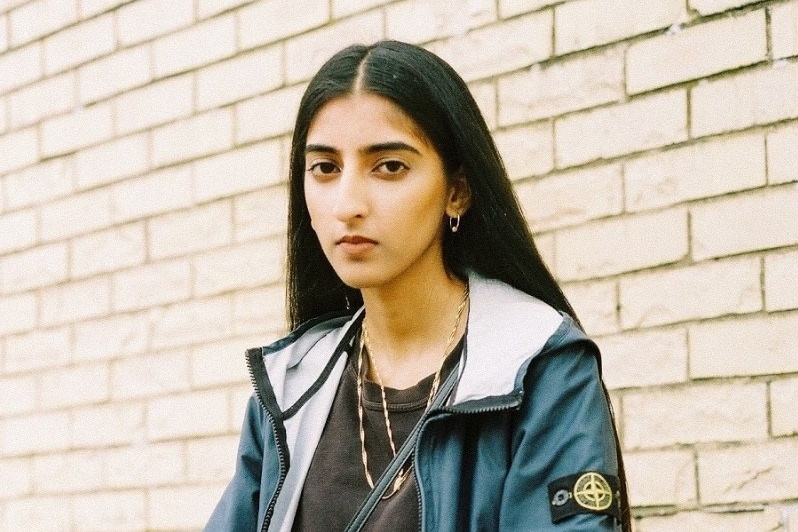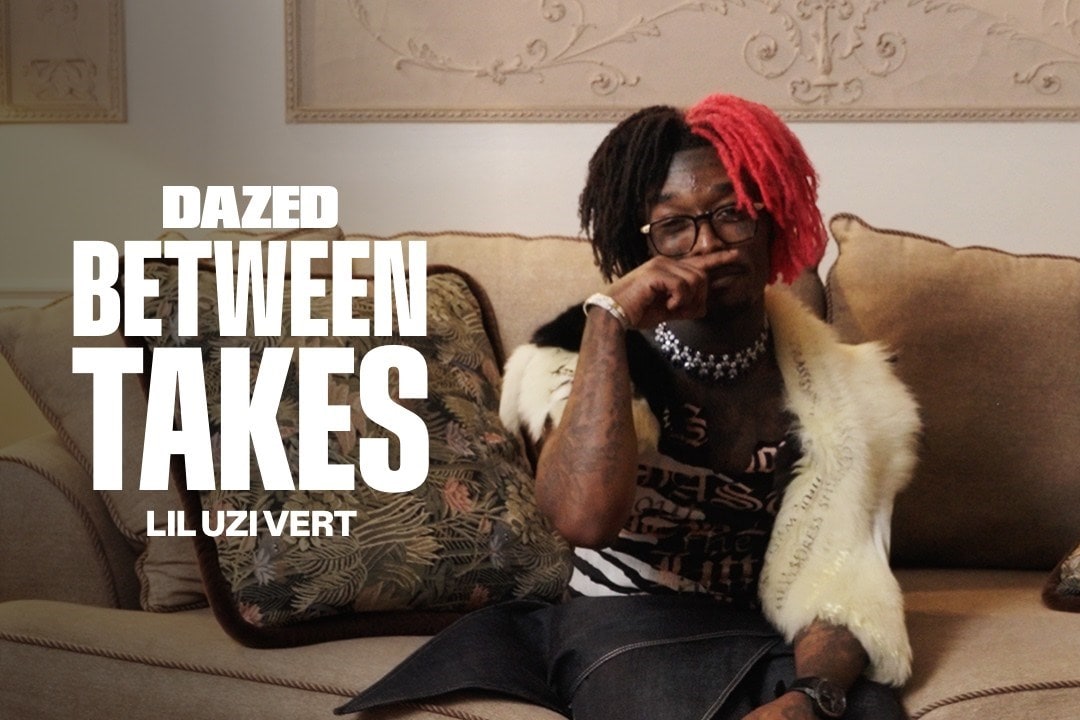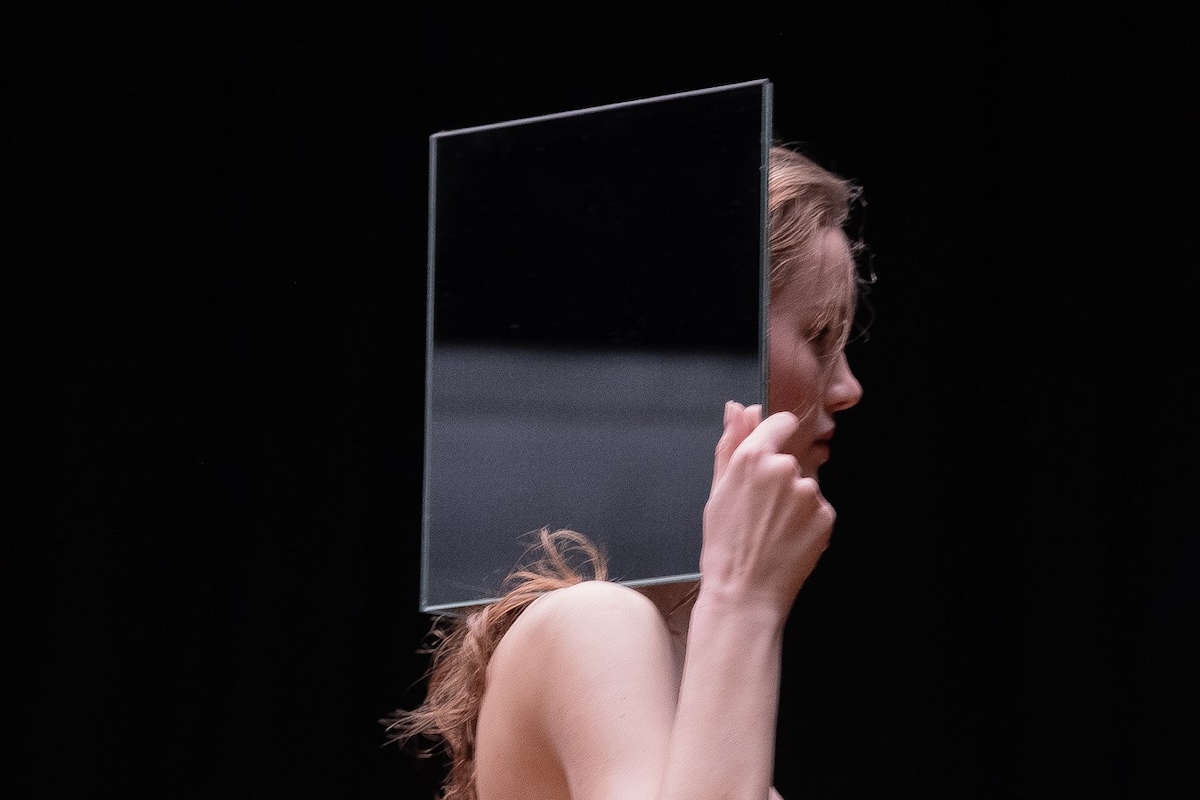Alina Akbar considers herself “a bit of an activist”. “I like to stay in tune with what’s happening in the world,” she says. The 24-year-old is a Manchester-based visual artist who uses multidisciplinary storytelling to explore aspects of South Asian, Muslim and working-class identity in the north of England. She’s committed to honouring the communities she grew up in and around – a poignant mission, especially in the wake of the rise of the far-right and the race riots that swept the UK last summer.
I’ve followed her work for a few years through social media and appreciate her ability to preserve the quiet, fleeting moments of British Muslim culture – from young men’s mosque fashion before Friday prayers, to family iftar gatherings for Ramadan captured for a ‘Salaam Cola’ campaign, an alternative brand of cola popularised among British Muslims due to recent pro-Palestine boycotts.
Her visual storytelling cuts through negative, one-dimensional tropes and showcases the beauty and complex history of working class British Asian culture, and the wider communities in and around Manchester. In 2022, she documented a young Muslim girl’s campaign to wear the hijab during sports lessons at school, in partnership with Football Beyond Borders, and her short film ‘Pardesi Raga’ brought fragmented scenes of Asian culture in everyday settings and the sounds of traditional Pakistani devotional qawwali music, nursery rhymes and drill beats to the prestigious walls of the South Asia gallery at the Manchester Museum, where it debuted in 2023.
Akbar’s raw, unfiltered visuals have won her recognition in arts, fashion and beyond – she was a Circa Prize 2024 finalist and has collaborated with Manchester United, exhibited with Chanel, shot a Nike x Marcus Rashford collection and captured music video and tour footage for Manchester rapper Meekz. I caught up with her to find out more about her inspirations.
Your short film ‘Pardesi Raga’ contained some pretty iconic and memorable shots – a Punjabi men’s horse riding club in Lancashire; a man singing and playing qawwali in a café; a young woman doing football tricks in a kurta, dupatta, jeans and Nikes, paying homage to the inimitable 2002 cult classic Bend it Like Beckham that put football-loving brown girls on the map. What made you choose to depict these aspects of British Asian life in the film?
Alina Akbar: It wasn’t even a conscious thought of ‘oh, I’m gonna show XYZ’. Part of it was a reflection of my own experience, and then the other part was scenes that I’ve always just had in my head, you know what I mean? They are spaces that I’ve been in, so I’ve been in that takeaway café – the ‘curry café’ is what the white people call it – every Sunday with my family, so I’ve always thought it’d be so cool to film in here and capture that setting before it gets renovated or something.
Same with the men on the horses. I remember when I discovered that was happening here, I saved so many videos, and I feel like this commission was the chance to put these thoughts I’ve been building for years into something. And even when I was making it I still didn’t know what it was gonna become. But I thought that unless you see it in the space where it’s meant to be shown in, you don’t get the full entire experience, because it’s a three-channel film installation.
This is just how it is in the north, and I wanted to document that. When I was thinking of the whole horse riding thing, I was thinking of how rare it is for Asians to own land in this country, to own stables, to own animals, to occupy a space in white, British countryside. That is such a rare thing. To my knowledge, anyway – I’ve never seen it up here. If anything, when you go to the countryside you have to be a bit cautious of how you carry yourself as a brown person in this country. I feel like subconsciously I knew I had to do it justice for everyone and also to myself.
Your early work featured street photography and snapshots of youth culture in Manchester, as well as music videos and BTS shots of Manchester-based rappers Meekz and Just Banco. Where did it all start for you?
Alina Akbar: I think I was just a yute, really – into grime, UK rap and youth culture. Beyond that, I was into Hypebeast and looking at Supreme drops and seeing who’s reselling what. I was also observing Eastern European football and how the girls would dress in Stone Island and CP and I was like oh, shit – there’s women like me wearing it out there. So from early on I was just a kid with the internet who was able to see so much visual documentation of elements I enjoyed. I thought ‘why can’t I do this as well, and showcase what I want to’?
I just slowly tapped in more when I was 16 or 17 with rappers from this city, it mostly started with Just Banco, and it was so tight-knit here so maybe another rapper would see me at his shoot and be like ‘okay, come to my shoot’ and from there it was just more and more.
But yeah, I wanted to visually document what was going on around here. Very early on I realised I have an eye for this. It wouldn’t always be about the artist – I was more interested in the setting around them. For me, it was never just about taking photos of a rapper’s face. It was about knowing that I was also building with the people around me. I carried that mindset from early on. I also was lowkey studying people who had done this before me; I love researching and I knew that was the way to do it. You have to work as a collective. This is a lifelong relationship where as long as you’re both creative, there’s space for collaboration, no matter what path you go down.
I actually wanted to make music videos at first but I didn’t have a camera to film with – but I had my little 35mm film camera for stills in the meantime. Photography was a much easier way in for me at that time. I was really young and knew I had time to develop into what I wanted to be.
Sometimes it feels contrived to talk about South Asian girls breaking stereotypes – almost fulfilling a reactive stereotype in itself – but some of your street photos featuring pitbulls and XL bullies really broke glass ceilings for me. I may never have the courage to approach an XL bully but I love to see another Pakistani girl breaking the mold. What’s it like storytelling and making art in places where not many brown girls have walked before you?
Alina Akbar: I only realised this recently with people saying to me ‘not many brown girls – or girls in general – have been in these spaces’. I can’t say it’s anything different to what I’ve been brought up around.
I’ve probably always strived to be different and do different things. I’ve always gotten a boost off of doing things no one else is. A lot of the people in my photos are from the Black community, and I think it became quite fun to draw the parallels in our communities and bond with them over different things. I really love that whole exchange of culture. My mum is a beautician and I spent so many years growing up within an Afro-Caribbean hairdresser where my mum had a room.
People can jump to so many conclusions like, ‘why is she around so many men?’ when in reality we’re having wholesome conversations about the fact that their grandma puts money in a ‘pardna’ [communal money pooling originating in Caribbean communities] and our grandmas put money in a ‘committee’ [communal money pooling originating in desi communities] – it’s the same thing. Especially up north sometimes, people are so scared to mix and cross cultures, but personally for me there’s been so much reward in that, and added so much more depth and meaning to my work.
What challenges have you faced pursuing your creative passions as a working-class British Pakistani woman? What advice do you have for young people from your own community who want to work in a creative industry still largely dominated by people from a middle-class background?
Alina Akbar: I don’t dwell too much on my barriers, I don’t let that make up my whole identity. I learned that not every space is a space to complain about being a working-class creative. I know when to talk about it and when not to… sometimes I just get on with it, and get on with hustling and working hard. It’s not a level playing field but it’s maybe a bit more of a level playing field than it used to be, in the sense that it’s easier to pick up a camera. You ain’t gotta go to the BBC to make a short film.
You have to harness your working-class roots as a superpower… you’re gonna know how to make the most out of a budget and not let anyone be stupid with a budget. You’re gonna see how you can make a little extra for yourself. You have to flip what that working-class life teaches you, you have to flip that into being ahead and smarter than these middle-class kids.
What would your dream storytelling project look like? Without giving away your best ideas for free!
Alina Akbar: This is the only question that has thrown me off because I’m not a big dreamer. Even when people are like, ‘where do you wanna be in 5 years?’ I’m like, ‘I actually don’t know’. I love to be the person that just focuses on the now, and just lock in and be present with the project I’m working on. But I’m still gonna give you an answer!
This has been one of the ones I’ve struggled to get off the ground, but I’d love to look at Islam in prisons. There’s so many stereotypes around that, and it’s such a difficult thing to get off the ground because of the way the system is designed to limit art and real perspectives of the prison system. That would be one of my dream storytelling projects, to really be able to encapsulate that.



